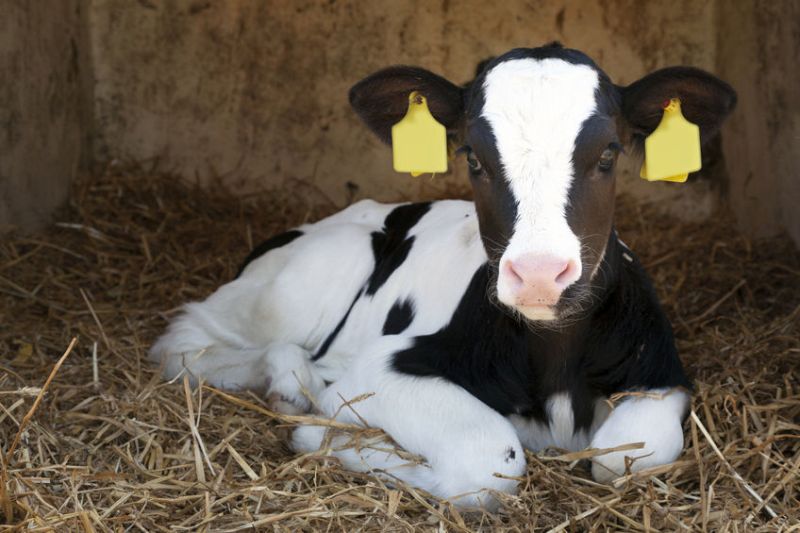
Farmers in the UK can now protect calves against the causes of viral pneumonia from as young as one week of age thanks to a vaccine launched by MSD Animal Health.
Bovilis Intranasal RSP Live, a new intranasal live vaccine, can be used in calves as young as one week of age for active immunisation.
It will reduce clinical signs of Bovine Respiratory Disease (BRD) and viral shedding from infection with Bovine Respiratory Syncytial Virus (BRSV) and Parainfluenza-3 Virus (PI3).
MSD's product is the only EU licensed vaccine against BRD that can be administered at 1 week of age.
With the onset of immunity starting 5 days after administration, no other EU licensed BRD vaccine acts as fast and protects calves earlier.
Bovine respiratory disease, a significant threat to calf health and welfare, can cause pneumonia and permanent lung damage in young calves and adult cattle.
A major cause of economic loss in the dairy and beef industries, BRD has an estimated prevalence of up to 72%.
Dr Geert Vertenten, of MSD Animal Health said: “We are pleased to share new data with veterinarians and producers that demonstrate an early memory effect of vaccination, leading to a protective immune mechanism in vaccinated animals.
“Bovilis Intranasal RSP Live also offers a convenient intranasal application that will help them run a successful farm business with healthy cattle.”
With the vaccine, immunity against nasal shedding due to BRSV and PI3 is achieved respectively after five to seven days.
In one study, the product induced an innate immune response in vaccinated animals starting five days after vaccination, while general disease indicators remained low compared to animals that were not vaccinated.
In another study, vaccinated animals did not exhibit a strong inflammatory response after challenge, indicating an early memory effect of the vaccination, leading to an optimal protective immune mechanism in vaccinated animals.
